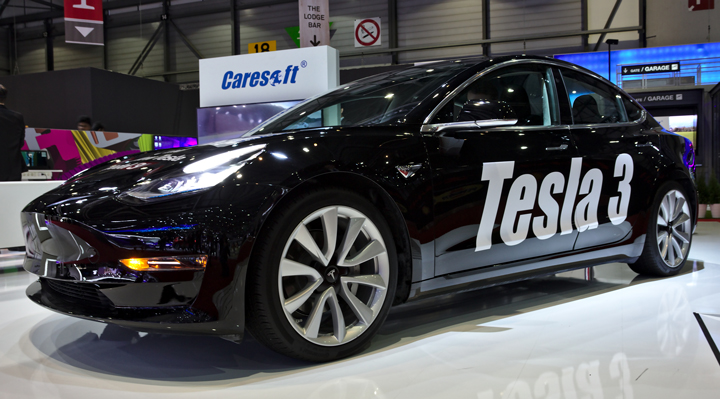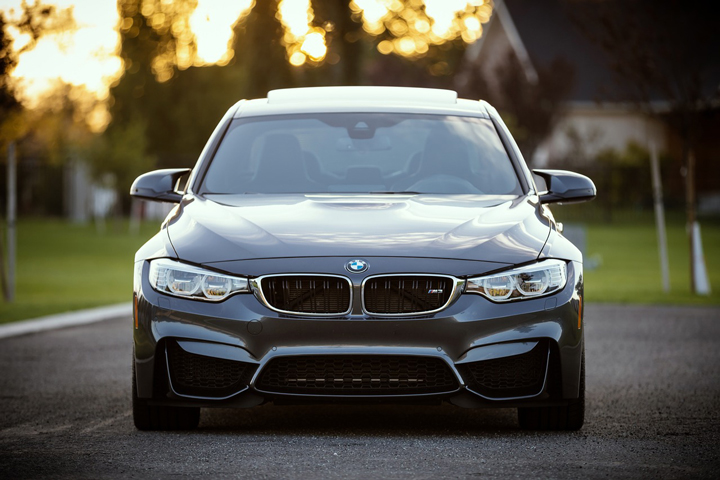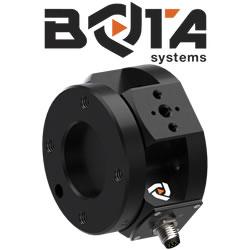We're currently on the precipice of the driverless vehicle revolution, with most of these companies rolling out fully autonomous cars sometime between the end of the year and 2021. It won't be much longer now until getting behind the wheel doesn't require turning it yourself
Top Article for 2018 - Here Are All the Companies Testing Autonomous Cars In 2018
Kayla Matthews | Productivity Bytes
We may not have flying cars anytime soon, but that's no matter, we definitely will have autonomous and driverless vehicles within the next couple of years. In fact, many auto manufacturers are already testing their driverless cars on real roadways.
Imagine if commuting or driving to a location didn't entail you putting your hands on the steering wheel? It is tough to picture in today's world, but that day is coming, and it's approaching fast. It could be here as early as 2021.
Lots of different companies are gearing up to launch autonomous vehicles, and 2018 is shaping up to be a year of testing. Here are all the companies testing autonomous cars on active roadways in 2018.

1. Tesla
Elon Musk, CEO of electric car powerhouse Tesla, has already promised that his company will be ready to launch their first autonomous vehicles in 2018. Sadly, that doesn't necessarily mean we'll see them used on roadways. Musk also seems to think that regulators will not have prepared for this to happen in time, and that looks like it will be the case for now.
All Tesla vehicles, including Model 3, are outfitted with a full self-driving mode called Autopilot. Thanks to a series of cameras and advanced sensors, the cars can autosteer, navigate and even merge onto and off of a freeway with no driver input. Automatic emergency braking and auto high beam modes also come standard on all Tesla models.
As soon as laws are in place to allow for self-driving vehicles, Tesla will be ready to unleash their full autonomy upon the world.
2. Google
Google was one of the first companies to introduce self-driving vehicles to the world, but they’ve never formally announced a release date for their cars. However, the former head of Google’s self-driving car project, Chris Urmson, announced during a Ted Talk that the company is shooting for a 2020 deadline.
That puts their vehicles on U.S. roadways by at least the end of 2018. Of course, we've known the company has been testing for some time now, so this should come as no surprise.
Unlike some of the other companies on this list, Google does not intend to roll out features on a case-by-case basis. Instead, they want to have a fully autonomous vehicle sans even a brake and steering wheel, up and running.
In September 2016, Google’s cars had traveled over 2 million miles in autonomous mode. You can bet they've nearly doubled that by now and will have many more to claim by the time the vehicles are ready for consumers.
3. Toyota
Toyota is currently using their navigation service to map routes on American roadways, which will eventually help their driverless vehicles find their bearings. They've also invested a significant chunk of funds in artificial intelligence and robotics. As you can expect, the goal is to integrate this tech into their consumer-friendly driverless vehicles, which they hope to launch by 2020.

4. BMW
You didn't think BMW would stay out of the driverless vehicle game, did you? They are currently shooting to launch their self-driving vehicles in China by 2021. Previously, they were teamed up with Baidu, another company on this list, to roll out driverless technology, but the two firms mutually separated after realizing they were after different things.
BMW still has plans to roll out their vehicles by 2021, and by 2025, they hope to have their vehicle lineup fully autonomous.
It’s worth noting the BMW 7 Series already has semi-autonomous features available for consumers, including lane-assist modes and collision protection.
5. Nissan
According to Nissan, their self-driving team has "achieved the technological advancements necessary to begin to make [autonomous vehicle] fiction a reality." First, they'll be rolling out their ProPILOT program in Japan, then in Europe and China and, finally, in the US.
After a series of updates to their self-driving vehicles, they aim to have a fully driverless car on roadways by 2020.
6. Ford
As part of a new ride-sharing service, Ford aims to release an entire fleet of self-driving vehicles by at least 2021. The difference between Ford's cars and many others on this list is that they will include neither pedals nor a steering wheel.
Ford's CEO Mark Fields says that his company "may not be the first" to deliver driverless vehicles, but that's okay. Their current goal is to provide ultimate "accessibility" which means that everyone will have the opportunity to own the technology when Ford makes it available.
7. General Motors
GM has struck a partnership with popular ride-sharing service Lyft to come up with a fleet of driverless vehicles. They plan to develop a network of cars that communicate with one another to enable on-demand service.
They haven't announced a release date, so we don't know when the service will be available. It's not a stretch to claim we might see something as early as 2020, but time will tell.
Since the partnership began, though, things have grown a bit more complicated. Ford is now aligned with Lyft as well, alongside Waymo. The long-term relationship between GM and Lyft currently seems to be on shaky ground.
8. Honda
Since early 2015, Honda has been testing their autonomous vehicles at the Concord Naval Weapons Station in San Francisco.
They are already planning to launch features of the semi-autonomous variety including collision warning, lane-departure and lane-keeping tech and more. Those features have appeared in the Acura and Civic models from 2016 and on.
As for full autonomy, Honda is aiming for a 2020 release date.
9. Audi
Audi’s high-tech A7 Sportback drove 550 miles by itself on real roadways in 2015. Unfortunately, there's no word on when the company's driverless tech might be available to consumers.
If we had to guess, we’d shoot for 2020 to 2021 for the full launch like most of the other manufacturers on this list.
10. Baidu
Beijing-based Baidu has been working on driverless technology for a while alongside other companies. They've partnered with manufacturers like BMW in the past and were recently cleared to test their vehicles on California roadways.
A modified BMW 3-Series was able to complete a variety of functions on its own, including U-turns, and travel 18.6 miles using Baidu's technology. Since the split with BMW, the company has been using a modified Chery EQ instead.
As of now, the company still plans to have a driverless car ready by the end of 2018.
More Auto Companies
Many different companies are working on autonomous vehicle technology. The above firms are some of the leaders in the space, but other important players include:
Not all of these companies plan to have driverless vehicles ready within the next couple of years. Hyundai, for instance, is planning to start rolling out semi-autonomous features soon but won't have a fully driverless vehicle ready until 2030.
We're currently on the precipice of the driverless vehicle revolution, with most of these companies rolling out fully autonomous cars sometime between the end of the year and 2021. It won't be much longer now until getting behind the wheel doesn't require turning it yourself.
The content & opinions in this article are the author’s and do not necessarily represent the views of RoboticsTomorrow
Comments (0)
This post does not have any comments. Be the first to leave a comment below.
Featured Product

